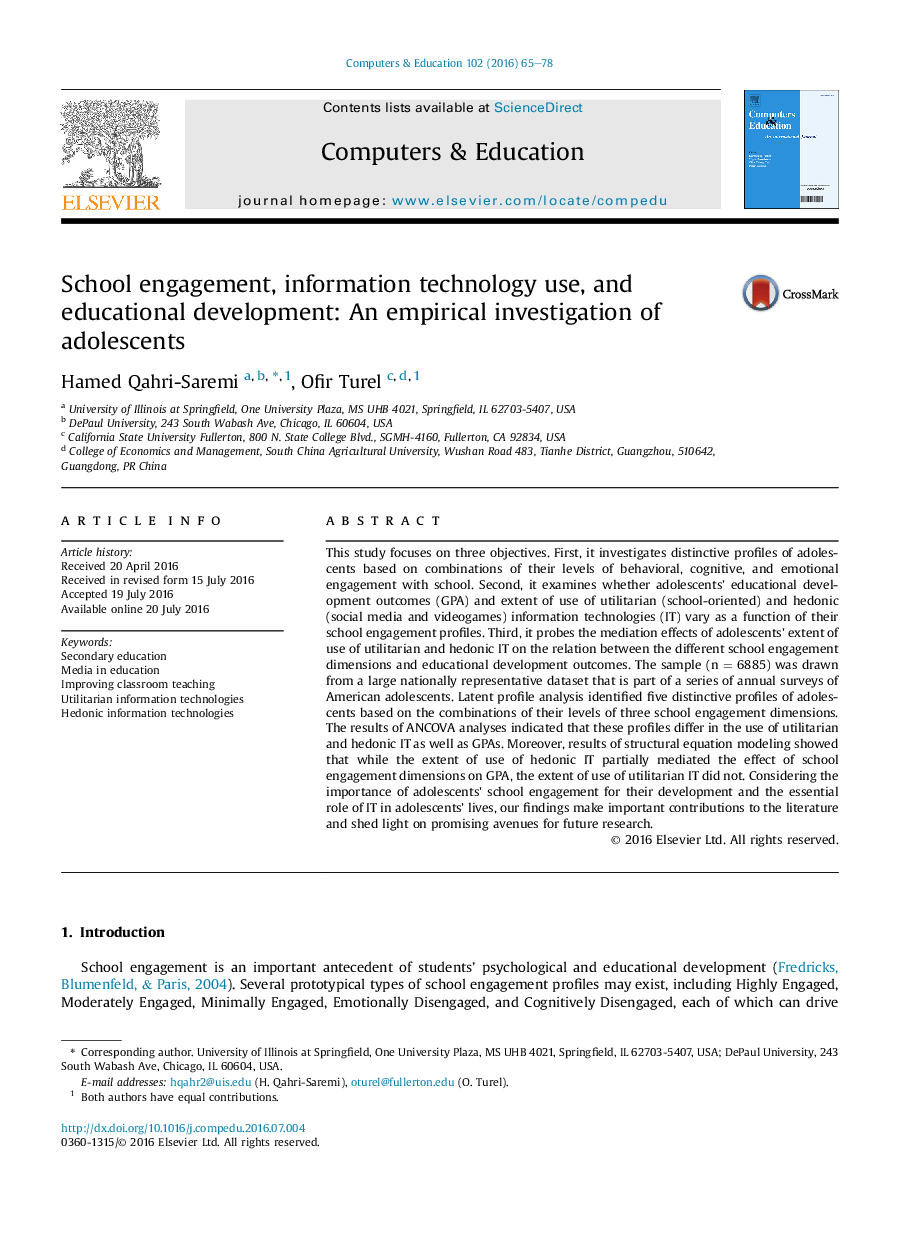| Article ID | Journal | Published Year | Pages | File Type |
|---|---|---|---|---|
| 348145 | Computers & Education | 2016 | 14 Pages |
•Distinctive School Engagement Profiles of Adolescents.•Explaining GPA and patterns of IT use based on school engagement profiles.•Mediation of patterns of IT use between school engagement dimensions and GPA.•Large, nationally representative dataset of adolescents.•Latent profile analysis, ANCOVA, and structural equation modeling.
This study focuses on three objectives. First, it investigates distinctive profiles of adolescents based on combinations of their levels of behavioral, cognitive, and emotional engagement with school. Second, it examines whether adolescents' educational development outcomes (GPA) and extent of use of utilitarian (school-oriented) and hedonic (social media and videogames) information technologies (IT) vary as a function of their school engagement profiles. Third, it probes the mediation effects of adolescents' extent of use of utilitarian and hedonic IT on the relation between the different school engagement dimensions and educational development outcomes. The sample (n = 6885) was drawn from a large nationally representative dataset that is part of a series of annual surveys of American adolescents. Latent profile analysis identified five distinctive profiles of adolescents based on the combinations of their levels of three school engagement dimensions. The results of ANCOVA analyses indicated that these profiles differ in the use of utilitarian and hedonic IT as well as GPAs. Moreover, results of structural equation modeling showed that while the extent of use of hedonic IT partially mediated the effect of school engagement dimensions on GPA, the extent of use of utilitarian IT did not. Considering the importance of adolescents' school engagement for their development and the essential role of IT in adolescents’ lives, our findings make important contributions to the literature and shed light on promising avenues for future research.
